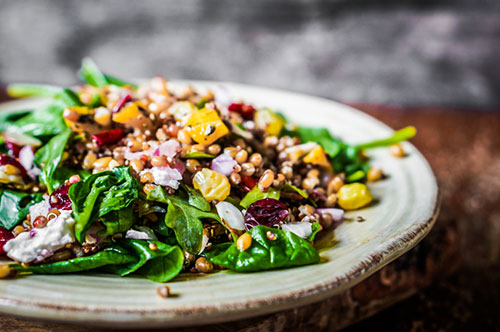
When it comes to sustainability . . . at least agriculture's definition . . . dairy has been a leader. However, as discussions ensue on the topic, there is concern the sustainability concept is creeping into the 2015 revisions to USDA's MyPlate. If that does happen, all of us who produce milk and manufacture dairy products will be darn glad we spend time and resources on the sustainability effort.
How does dairy fare on the issue?
"The dairy industry is the second-most efficient producer of animal protein," said Roger Cady with the Elanco Scientific Affairs Team, noting that dairy cows not only produce milk but meat, as well.
"There are 21 amino acids - the building blocks of protein - that sustain humans. Our body produces 11, the other 10 we must eat. Animal proteins are more complete than plants when it comes to these essential amino acids," Cady went on to explain.
There are a number of fronts where sustainability can be improved. "Seventy percent of the environmental footprint for dairy occurs before milk even leaves the farm," said Cady. "To improve upon that number, we must move from adding more cows to improving yield to meet future global milk needs."
What are others thinking?
"There is no other industry working on sustainability like dairy," said Suzanne Lindsay-Walker, director of corporate sustainability with the Kroger Co.
Dairy's efforts on sustainability will be important when circling back to the conversation regarding 2015 revisions to the USDA MyPlate. If sustainability does factor into recommended food guidelines, only published and peer-reviewed research can be considered by the evidence library. And fortunately, the collective dairy industry has done a good job of funding this type of university research.
From University of Minnesota's Joanne Slavin's perspective, some groups have another view on sustainability. "Sustainability is a code for vegan," said Slavin in reference to some groups' view on the topic. In their minds, "grains, fruits and vegetables are sustainable, meat is not," said the PhD professor of food science and nutrition who was a 2010 dietary guideline advisory committee member.
Aside from the inroads on the sustainability front, America really has another issue it must tackle. It is not sustainable to waste food. Unfortunately, Uncle Sam deserves an "F" on that report card measure.
"Forty percent of the food created and produced in the U.S. is lost (never eaten by humans)," said Lindsay-Walker.
(c) Hoard's Dairyman Intel 2015
March 23, 2015








